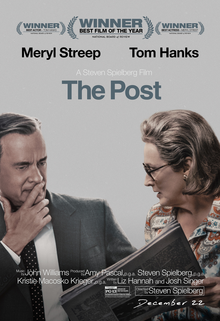
Directed by Marielle Heller
Written by Micah Fitzerman-Blue and Noah Harpster, based on the 1998 Esquire article “Can You Say… Hero?” by Tom Junod
Cast: Tom Hanks, Matthew Rhys, Chris Cooper, Susan Kelechi Watson, Maryann Plunkett, Enrico Colantoni, Wendy Makkena, Tammy Blanchard, Noah Harpster, Carmen Cusack, Kelley Davis, Christine Lahti, Maddie Corman, Daniel Krell, Jessica Hecht
Soundtrack: Nate Heller
The question on many people’s minds since they first found out about this film is, “How can you make this movie after last year’s documentary, Won’t You Be My Neighbor?”
The short answer is: you really can’t.
If you haven’t seen the documentary yet, maybe go see this new movie first, and then the documentary will answer almost any other questions you might have.
This isn’t to say A Beautiful Day in the Neighborhood doesn’t have any value. Tom Hanks does manage to somewhat capture Fred Rogers’ spirit, even if he doesn’t really look or sound like him, and there are some other solid performances (big ups to Welsh actor Matthew Rhys for continuing to pull off legitimate American accents), but there’s one element of the film that I simultaneously appreciated and was baffled by.
There’s no hint to it in any of the marketing, but the framing device of A Beautiful Day in the Neighborhood is that the movie itself is like an episode of Mister Rogers, so you have travel interludes where Pittsburgh and New York are done up like the miniature neighborhood from the show. While I enjoyed the artistry of this, the problem is that the device is applied inconsistently, and there’s one particular scene in the movie that gave me flashbacks to Welcome to Marwen (which is not a good thing).
The long and short of it is that if you’re looking for a feel-good movie, and you’re open to that experience, then A Beautiful Day in the Neighborhood might work for you, I certainly wouldn’t talk you out of seeing it, but if you find it [more than] a little jarring, I’m right there with you.
Rating: ★★★☆☆

Directed by Brian Kirk
Written by Adam Mervis (story and screenplay) and Matthew Michael Carnahan (screenplay)
Cast: Chadwick Boseman, Sienna Miller, J.K. Simmons, Stephan James, Taylor Kitsch, Keith David, Alexander Siddig, Louis Cancelmi, Victoria Cartagena, Gary Carr, Morocco Omari, Chris Ghaffari, Dale Pavinski, Christian Isaiah, Sarah Ellen Stephens, Jamie Neumann, Peter Patrikios, John Douglas Thompson, Obi Abili, Andy Truschinski, Darren Lipari, Adriane Lenox
Soundtrack: Henry Jackman & Alex Belcher
The first several [dozen] times I saw the trailer for 21 Bridges, I thought, “That sounds like a great premise for some sort of post-apocalyptic mood piece, but not necessarily a serious cop drama.”
To my surprise, the filmmakers actually made it work.
For much of its runtime, 21 Bridges is a solid, surprisingly grounded piece of entertainment (like a more realistic poliziotteschi).
The trouble comes in the third act, when the story becomes a little too pulpy for its own good (I’d level a similar criticism at The Good Liar, though that one has the excuse of being based on a novel).
Still, I think this might be the best performance I’ve seen from Chadwick Boseman (though I’m largely uninitiated, to be honest), which isn’t totally surprising as 21 Bridges seems to have been something of a passion project for him.
Unfortunately, Sienna Miller’s “New Yawk” accent is a bit of an albatross, and a great-on-paper supporting cast is largely wasted.
Even so, as with A Beautiful Day in the Neighborhood, I wouldn’t talk you out of seeing it, just don’t go in expecting Heat (or even Heat Jr).
Rating: ★★★☆☆
P.S.
I’m not criticizing anyone, I know movies are tough to make, but I do find it a little funny that the Mister Rogers movie got to shoot on the real NYC Subway whereas the New York crime thriller had to use Philadelphia’s.



